#taiji tonoyama
Explore tagged Tumblr posts
Text













The Naked Island (Kaneto Shindo, 1960).
41 notes
·
View notes
Text



裸の島 / The Naked Island Kaneto Shindô. 1960
Cable Car Senkoji Temple Mountain Ropeway, 20-1 Higashitsuchidocho, Onomichi, Hiroshima 722-0033, Japan See in map
See in imdb
#kaneto shindô#裸の島#the naked island#cable car#japan#hiroshima#hiroshima prefecture#nobuko otowa#taiji tonoyama#shinji tanaka#masanori horimoto#higashitsuchidocho#onomichi#movie#cinema#film#location#google maps#street view#1960
17 notes
·
View notes
Text
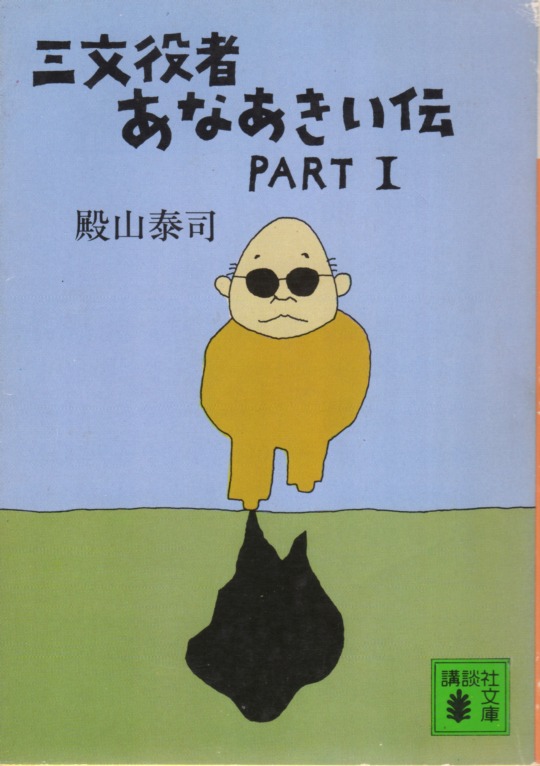
三文役者あなあきい伝 PART 1 殿山泰司 講談社文庫 カバー装画=和田誠
#三文役者あなあきい伝 PART 1#三文役者あなあきい伝#taiji tonoyama#殿山泰司#makoto wada#和田誠#講談社文庫#anamon#古本屋あな��ん#あなもん#book cover
49 notes
·
View notes
Text
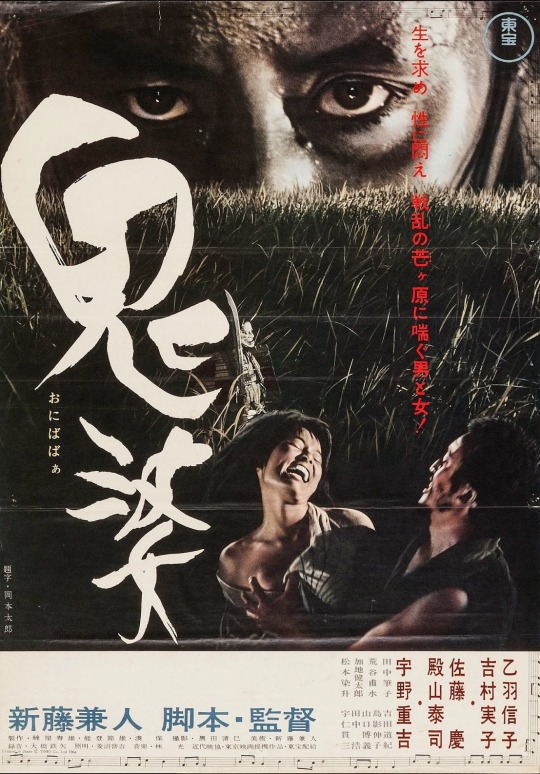
2 notes
·
View notes
Text
Onibaba (1964)

Watching older, classic films - particularly foreign ones - is a unique experience. Many of the conventions from today’s cinema are in their infancy so you often see something old that feels new because the mold hadn’t been finalized yet. In its own, possibly unintended way, 1964’s Onibaba keeps you guessing. It feels like a horror movie but plays out as a drama. Deeply rooted in Japanese culture, I had no idea how the film was going to end.
Set somewhere in feudal Japan while unnamed lords wage a civil war, an older woman (Nobuko Otowa) and her daughter-in-law (Jitsuko Yoshimura) hide in the endless field of tall grass. Stray warriors pass are murdered so the women can take their gear and make ends meet by selling it. When their neighbour, Hachi (Kei Satō) returns from the war, his presence creates a growing rift between the two scavengers.
Most of the characters in Onibaba are unnamed, further giving it a folk tale-like quality. You think you’re following a story about simple archetypes, a basic moral passed down through the ages when suddenly, characters will reveal something unexpected about themselves. This is probably going to be a morality tale - in the end, most horror stories are - but how is this a horror story? By showing you how cheap people's lives are. The women barely make a living stealing weapons and armor from people, human beings they had to kill. It fills you with dread thinking about how little they get for such a heinous crime done so regularly. The women are essentially cannibals, killing men at spearpoint to survive. It’s disturbing but is this what the title’s translation of “demon woman” translates to? It can’t be. “Woman” is singular so it must be that at some point, one of the two women will do something particularly evil… but which one?
The black-and-white photography adds much to this film. Had it been in colour, the fields of grass would make this whole movie green. It would feel vivid and alive. As is, it feels gloomy. The endless vegetation swaying in the wind reminds you of water. These two women are in purgatory and plagued by hunger. There’s got to be a way to escape but the only escape we see is this massive, gaping hole near their home. Its presence mimics the characters in the film, who are always hungry and never satisfied. You just know someone will eventually fall in, but when? What kind of hell awaits them at the bottom?
While Onibaba moves slowly towards an uncertain direction at first, stay with it. Just as you think you’ve got its story figured out, you learn a new detail about the old woman, or the daughter-in-law does something that sends ripples through their world and makes you forget your previous expectations. Now it's an erotic horror film, a drama, and a folk tale. It’s all sorts of things blended together and its artistic presentation makes it feel simultaneously classic and brand-new. (Original Japanese with English Subtitles, October 25, 2019)

#Onibaba#movies#films#movie reviews#film reviews#Kaneto Shindo#Nobuko Otowa#Jitsuko Yoshimura#Kei Sato#Taiji Tonoyama#1964 movies#1964 films
4 notes
·
View notes
Text

Ein japanischer Film. Samurai (werden dahingemetzelt, um ihre Rüstungen zu verschachern), Sex (immer schön), Mord, Gewalt & Habgier (sowieso), Eifersucht (lässt sich in Dreierkonstellationen kaum vermeiden), Dämonen (lauern überall), einem bodenlosem Loch (nützlich zur Entsorgung der Leichen) und Schilf (nicht das schlechteste Alleinstellungsmerkmal) nicht zu knapp.
0 notes
Text



Watching DOUBLE SUICIDE: JAPANESE SUMMER [無理心中日本の夏, MURI SHINJU: NIHON NO NATSU] Nagisa Ôshima Japan, 1967
#watching#Nagisa Ôshima#Japanese films#The Criterion Collection#Eclipse Series#The Criterion Channel#Keiko Sakurai#Kei Satō#Masakazu Tamura#Taiji Tonoyama#Hôsei Komatsu#Rokko Toura#1967
0 notes
Text

. You want to make love all the time, huh?
In the Realm of the Senses (Ai no korîda), Nagisa Ôshima (1976)
#Nagisa Ôshima#Tatsuya Fuji#Eiko Matsuda#Aoi Nakajima#Yasuko Matsui#Meika Seri#Kyôji Kokonoe#Taiji Tonoyama#Akiko Koyama#Hideo Itô#Minoru Miki#Patrick Sauvion#Keiichi Uraoka#1976
1 note
·
View note
Text
Onibaba
12 1964 ‧ Horror/War ‧ 1h 43m
Onibaba (鬼婆, lit. "Demon hag"), also titled The Hole, is a 1964 Japanese historical drama and horror film written and directed by Kaneto Shindō. The film is set during a civil war in medieval Japan. Nobuko Otowa and Jitsuko Yoshimura play two women who kill infighting soldiers to steal their armor and possessions for survival, while Kei Satō plays the man who ultimately comes between them.
An impoverished mother and daughter-in-law kill soldiers and steal their belongings. After the mother learns of the son's death, she dons a mask to scare her daughter-in-law into staying with her.
Release date: January 29, 1966 (France)
Director: Kaneto Shindo
Cinematography: Kiyomi Kuroda
Language: Japanese
Distributed by: Toho Co., Ltd.
Music by: Hikaru Hayashi
Starring
Nobuko Otowa
Jitsuko Yoshimura
Kei Satō
Taiji Tonoyama
Onibaba (film) - Wikipedia
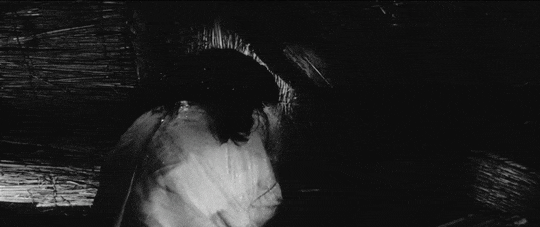


Onibaba (1964), dir. Kaneto Shindo
2K notes
·
View notes
Text
Hachiko
The tragic, true story about Hachikō, an Akita dog who was loyal to his master, Professor Ueno, even after Ueno’s death. Credits: TheMovieDb. Film Cast: Shujiro Ueno: Tatsuya Nakadai Shizuko Ueno: Kaoru Yachigusa …: Toshiro Yanagiba …: Toshinori Omi Chizuko Ueno: Mako Ishino Okichi: Masumi Harukawa Hashimoto: Taiji Tonoyama Kondo: Yoshi Katō Yasui: Shigeru Izumiya Serizawa: Kei Yamamoto Tabacco…

View On WordPress
0 notes
Text

















The Naked Island (Kaneto Shindo, 1960).
12 notes
·
View notes
Text
Review "The Naked Island" ("Hadaka no shima")
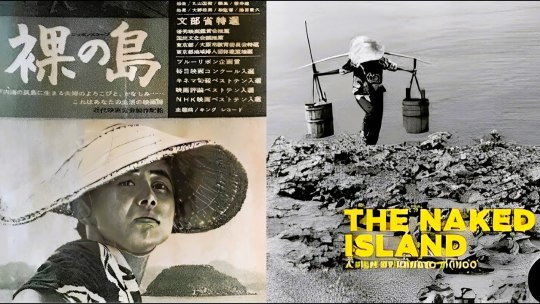
I watched "The Naked Island" directed by Kaneto Shindô. The main actors are Nobuko Otowa as Toyo, the mother,
Taiji Tonoyama as Senta, the father, Shinji Tanaka as Tarô - the elder son, and Masanori Horimoto as Jirô - the younger son. These four make up a family that grows sweet potatoes on an island not far from the mainland (well, I assume it is one of the major islands of the Japanese chain of islands). This island has no water for drinking. It sits in the inland sea. Every day the parents make at least two trips to the mainland to get buckets of water to bring back to the island. Each of them, together or individually, carries up two large buckets that sit on a piece of wood that rests on their shoulder. They have to carry the water-filled buckets up a narrow path which goes up a very tall hill to where they live and cultivate plants . This does not look like an easy task. . It is almost a Sisyphean task. They do reach the top but they have to do it over and over again every day. There are some side characters. The younger son goes to school on the mainland. There is a teacher and a classroom of kids. Later there appears a priest. One thing of note for this film is that there is no dialogue. None. There is background music which is repeated throughout the movie. It is pleasant at first but you begin to wonder about it as it gets repeated day after day. There is also some singing by the school children once, I believe. So actually the names of the two boys may be in the script but you never hear their names. One does wonder why they don't have a cistern system to catch rain when it does rain or some mechanical device or conveyance to get the water up the hill. No reason is given. The movie goes through four seasons and you see some of their daily activities, although the main activity relates to the growing, harvesting and use of the sweet potatoes and of some type of grain and other normal daily activities including caring for some animals they have, meals, etc. This film is in black and white. The setting is really quite lovely. The viewer sees the acceptance by the family of their life. I believe this is set just after WWII and I think everyone has difficult times and this certainly illustrates that. I enjoyed the film although it is somewhat depressing seeing them go through these same days and hardships, day after day. Occasionally the boys play and laugh. Occasionally the mother and father have smiles on their faces, watching the boys, at the end of the day, taking a hot bath, etc. They do have some outings to the mainland which obviously are entertaining. This is a marvelous film. There is only one angry scene in the film when the mother spills one of her two buckets of water. The father walks a few steps down (they are in the middle of their cultivated area), looks at her and slaps her. It is more of a slap about her wasting water than in true anger. She doesn't really react. She accepts this. One is lead to believe she understands this and doesn't really have a problem with it. There is also a sad portion of the movie but I won't detail that here.
Although one might think that the two adults are actually farmers, they are both actors and are in many movies. In real life Shindô, the director, later married Nobuko Otowa, the mother in the film. Interestingly enough both Nobuko Otowa, who died first in real life, and later Shindô both had their ashes scattered on this island. There were many years and many films between this film and their deaths.
This film won numerous awards including the Grand Prix at the Moscow International Film Festival. In the classic films list, They Shoot Pictures Don't They, this film is number 876.
The release I watched is from Criterion and the print is excellent. There is a lot of supplemental material which I will watch today and over the next few days.
1 note
·
View note
Photo
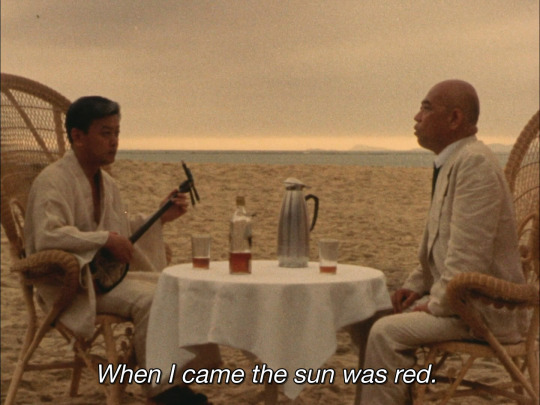

Nagisa Oshima
- Dear Summer Sister
1972
#nagisa oshima#nagisa Ōshima#dear summer sister#大島渚#夏の妹#Natsu no Imōto#殿山泰司#戸浦六宏#rokko toura#taiji tonoyama#japanese film#1972#sozosha#創造社#atg#art theatre guild
52 notes
·
View notes
Text

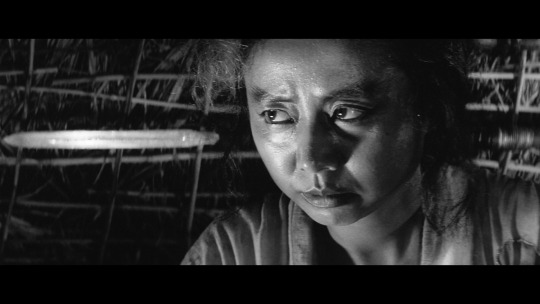
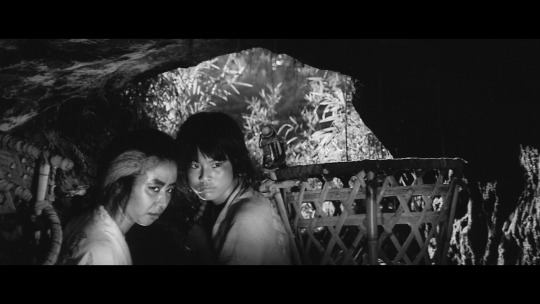
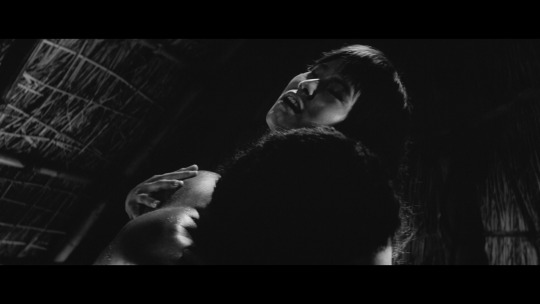






ONIBABA 鬼婆 (1964)
CRITERION COLLECTION Blu-ray 2021
#鬼婆#onibaba#Demon Hag#kaneto shindo#horror#drama#nobuko otowa#乙羽 信子#Jitsuko Yoshimura#吉村実子#Kei Satō#佐藤 慶#Taiji Tonoyama#殿山 泰司#Jukichi Uno#宇野重吉#新藤 兼人#blu-ray#physical media#criterion collection#film#movie#gallery#japan
65 notes
·
View notes
Photo

Recommendation of the week: Onibaba (1964)
Dir.: Kaneto Shindô
Cast.: Nobuko Otowa, Jitsuko Yoshimura, Kei Sato, Taiji Tonoyama, Jûkichi Uno.
Genre: Terror
Plot: In the Fourteenth Century, during a civil war in Japan, a middle-aged woman and her daughter-in-law survive in a hut in a field of reed killing warriors and soldiers to trade their possessions for food.
Filmphilics score: 8/10
🎃 Halloween is coming... 🧟♀️
#onibaba#kaneto shindo#nobuko otowa#jitsuko yoshimura#kei sato#taiji tonoyama#jukichi uno#terror#terror films#terror movie#cult movies#cult film#cult cinema#cinema#film#movie
34 notes
·
View notes
Photo

三文役者の無責任放言録 殿山泰司 ちくま文庫 カバーデザイン=南伸坊
11 notes
·
View notes